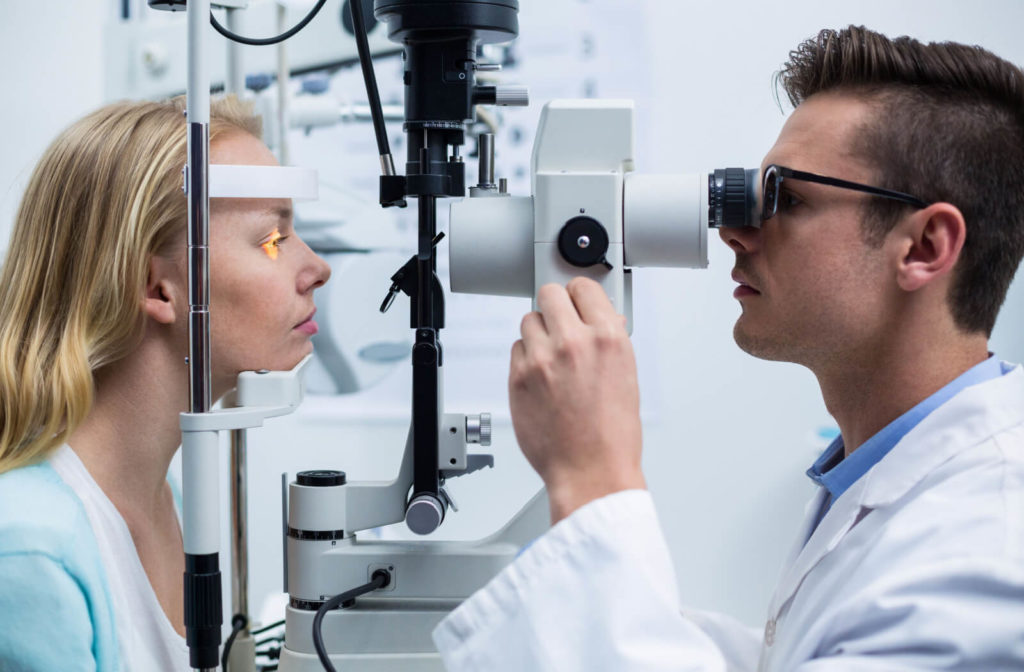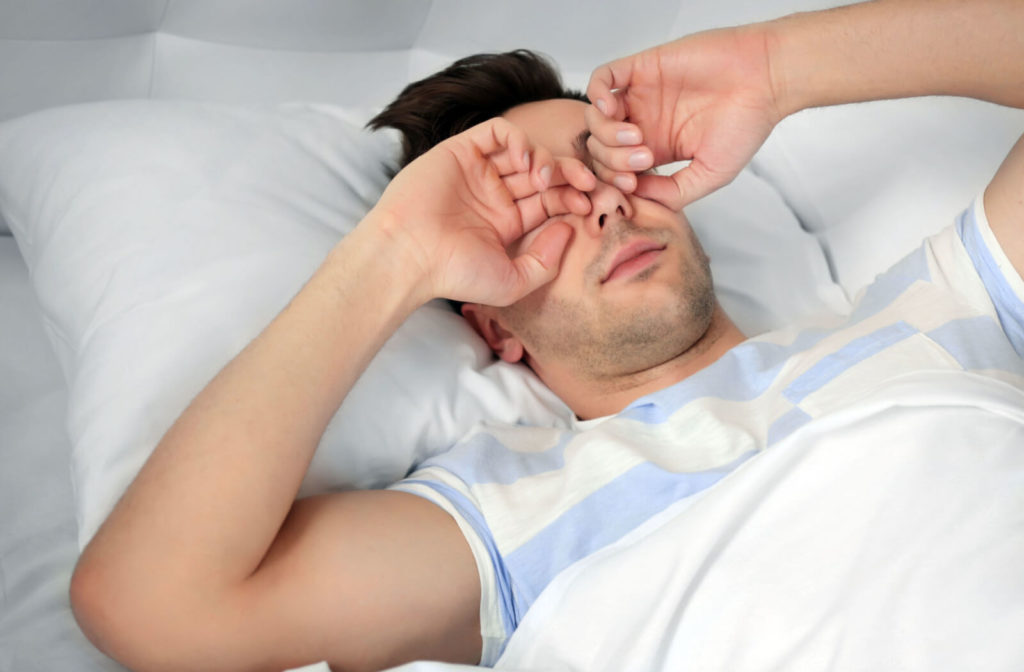A common morning occurrence for many individuals is dry eyes when waking up. If you’ve experienced the discomfort of dry eyes upon waking, you’re not alone.
Dry eyes in the morning can result from nocturnal lagophthalmos, poor-quality tears, and inadequate tear production. When you visit your eye doctor for an eye exam to determine the underlying cause, they can recommend the proper treatment. You can also take measures to prevent dry eyes and greet the day feeling comfortable and well-hydrated.
What Is Dry Eye Disease?
Dry eye disease, or dry eye syndrome, commonly occurs when the eyes don’t produce enough tears or when the tears evaporate too quickly. When there’s an imbalance in the tear film, it results in poor-quality tears and dry eyes. Dry eye can lead to discomfort, irritation, and, if left untreated, potential damage to the cornea.
Apart from dry eyes, you can experience the following symptoms in the morning:
- Eye redness
- Stinging or burning sensation
- Scratchy feeling in the eyes
- Light sensitivity
- Blurring vision
- Stringy mucus
Causes of Dry Eyes in the Morning
Dry eyes in the morning can result from several factors affecting tear quality, tear production, and increased tear evaporation.
Nocturnal Lagophthalmos
Nocturnal lagophthalmos (NL) is a medical term used to describe a condition where an individual’s eyelids do not fully close during sleep. Nocturnal lagophthalmos can occur in one or both eyes.
In nocturnal lagophthalmos, the eyes are partially exposed during sleep, leaving them exposed to air, thus affecting the tear film and causing dry eyes in the morning.
Tear Quality
Tears contain water, oil, and mucus. The water layer helps hydrate and protect the eyes, the oil layer provides a smooth eye surface and prevents tear evaporation, and the mucus layer helps spread tears evenly and stick to the eye’s surface.
The lack of one or more components in tears can lead to an unstable tear film and tears evaporating more quickly, leading to dry eyes in the morning. One cause of dry eye is meibomian gland dysfunction, which occurs when the meibomian glands in the eyelids that secrete the oil in tears become blocked.
Inadequate Tear Production
Insufficient tears or a lack of water can cause dry eyes in the morning. Inadequate tear production can result from the following:
- Age: Tear production decreases with age, especially after 65 years.
- Blink rate: Long hours in front of screens before bedtime can reduce blink rate and increase dry eye symptoms.
- Environment: The air in the room is too dry because of heating or air conditioning.
- Medications: Antidepressants, antihistamines, and medications for high blood pressure can cause your eyes to become dry.
- Medical conditions: Sjogren’s syndrome, rheumatoid arthritis, or thyroid disorders can cause low tear production.
Treatment for Morning Dry Eyes
Addressing morning dry eyes involves a combination of preventive measures and targeted treatments to alleviate symptoms.
Treatments for NL
- Use an ophthalmic ointment before going to sleep
- Tape the eyelid closed during sleep
- Use warm eye masks
Intense Pulsed Light Therapy (IPL)
- IPL uses light energy to warm meibomian glands to liquefy the blockages and help release oil in tears. It also helps with inflammation.
Hydration
- Drink 8 to 10 glasses of water every day to hydrate the body and positively impact tear production.
- Use preservative-free artificial tears or lubricating eye drops before bedtime to provide additional moisture.
Prescription Eye Drops
- Your eye care professional may prescribe prescription eye drops that address inflammation or stimulate tear production.
Adjust Sleeping Environment
- If a fan or heater has air blowing toward your face, adjust the direction or position to minimize dry eyes.
- Use a humidifier in your bedroom to maintain optimal humidity levels, especially in dry climates.
Eye Hygiene
- Gently clean your eyelids with warm water and mild soap to remove any debris or residue that may contribute to irritation.
Blink Frequently
- Be mindful of your blink rate, especially if you spend extended periods in front of digital screens and take regular breaks.
Warm Compress
- Apply a warm compress to your closed eyes for a few minutes in the morning to help stimulate the meibomian glands.
Review Medications
- If you’re taking medications that may contribute to dry eyes, speak to your eye doctor about potential alternatives or adjustments.

Find Relief from Morning Dry Eyes
Dry eyes in the morning can be a pesky and irritating issue. But don’t let dry eyes stop you from starting your day off right. By implementing these measures, you can create a routine that addresses morning dry eyes and promotes overall eye health.
It’s important to note that individual responses to preventative measures may vary. So, if morning dryness persists or worsens, book an appointment with Family Focus Eyecare to assess the underlying causes of your dry eyes and receive a tailored treatment approach based on your specific needs for all-day relief.
Think you might have symptoms of Dry Eye? Take a Free Dry Eye Assessment here.



